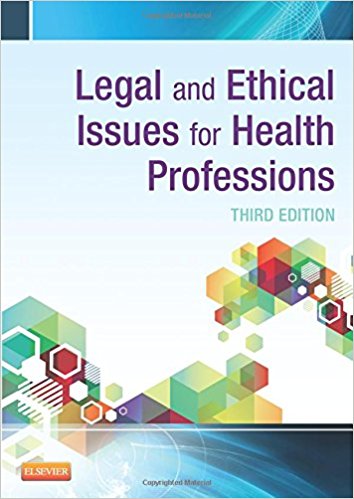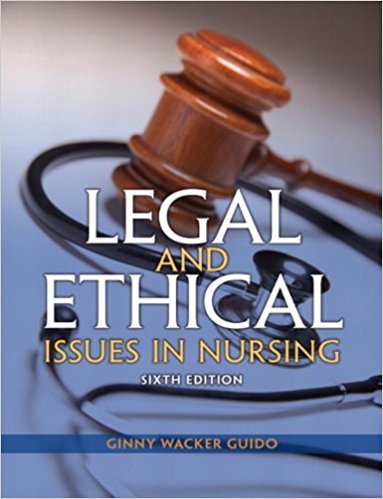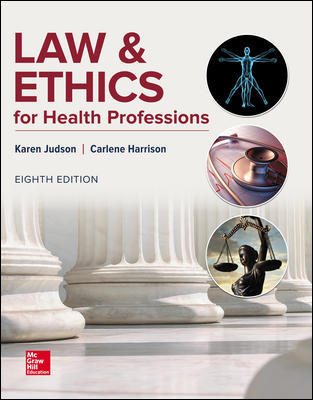Legal And Ethical Issues for Health Professions 3rd Edition By Elsevier – Test Bank
Chapter 3
MULTIPLE CHOICE
1. Bioethics is defined as the field of study examining the ethical dilemmas surrounding:
|
a. |
advances in bioscience. |
|
b. |
advances in diagnostic treatment procedures. |
|
c. |
ethical issues surrounding medical research. |
|
d. |
all of the above. |
ANS: D
Although advances in bioscience and diagnostic treatment procedures, as well as medical research, provide important discoveries, they also involve challenges to the rights and privacy for the patient. Bioethics is the study of these ethical dilemmas.
DIF: Cognitive Level: Knowledge REF: pp. 36-37
2. What is the main goal of ethical medical research?
|
a. |
Make advances in the medical field. |
|
b. |
Make treating patients easier on the patient. |
|
c. |
Restore or prevent illness, death, and disabilities caused by diseases. |
|
d. |
Discover cures. |
ANS: C
While making advances in the medical field, making treatment easier on the patient, and discovering cures are all part of the goals of ethical medical research, the main goal is to battle diseases through restoration or prevention of illness, death, and disabilities.
DIF: Cognitive Level: Comprehension REF: p. 37
3. A blind study is when:
|
a. |
researchers do not tell the subject what is being studied. |
|
b. |
the subject does not know whether he is getting the trial drug or a placebo. |
|
c. |
researchers give random test agents to the subject. |
|
d. |
the subject is given the trial drug at random times. |
ANS: B
In a blind study, the patient does not know whether he or she is getting the trial drug or a placebo. This ensures the patient will not have any preconceived effects of the drug so the patient will be more objective.
DIF: Cognitive Level: Knowledge REF: pp. 38-39
4. One problem for a patient with a disease participating in a blind study drug trial is he or she may:
|
a. |
be too sick to participate. |
|
b. |
think he or she will be cured. |
|
c. |
be so desperate for a good outcome, he or she cannot be objective. |
|
d. |
participate as a last resort for a cure, and may not receive anything for a long period of time. |
ANS: D
If a patient participates in a blind study, the patient may receive only the placebo and none of the trial drug, which could ultimately place the patient in a worse situation than before he or she began the trial.
DIF: Cognitive Level: Comprehension REF: p. 39
5. A male opts to undergo a vasectomy. This is considered:
|
a. |
voluntary sterilization. |
|
b. |
involuntary sterilization. |
|
c. |
contraception. |
|
d. |
abortion. |
ANS: A
When a patient chooses to end his or her ability for reproduction, it is considered voluntary sterilization. Involuntary sterilization is usually ordered by a court. Contraception is a temporary way to end reproduction abilities. Abortions end the life of the fetus.
DIF: Cognitive Level: Knowledge REF: pp. 40-41














Reviews
There are no reviews yet.